A National Park in India is a protected area to propagate or develop wildlife and its environment. Here is a list of the top 10 largest national parks in India.
Top 10 largest national parks in India
- Hemis National Park, Ladakh
- Desert National Park, Rajasthan
- Gangotri National Park, Uttarakhand
- Namdapha National Park, Arunachal Pradesh
- Khangchendonga National Park, Sikkim
- Guru Ghasidas (Sanjay) National Park, Chhattisgarh
- Sunderban National Park, West Bengal
- Indravati (Kutru) National Park, Chhattisgarh
- Papikonda National Park, Andhra Pradesh
- Kanha National Park, Madhya Pradesh
1. Hemis National Park
| Area | State/UT | Established |
| 4,400 sq km | Ladakh | 1981 |
Hemis National Park in Ladakh is the largest National Park in India. It covers an area of 4,400 square kilometers. Established in 1981, the park provides a safe home to the threatened snow leopard. Other faunas of the park include Brown bears, Red foxes, Tibetan wolf, Bharal, etc.
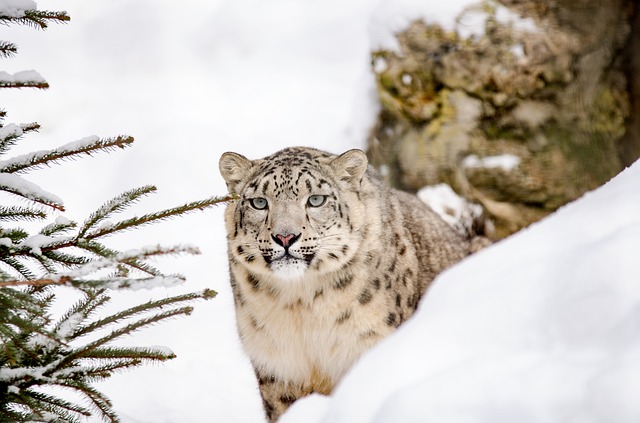
Most of the park is located at an elevation above 3,000 meters. There are also multiple trekking routes that you can enjoy (a permit is required). The best time to visit is from mid-October to October. The park is located just a few kilometers from the touristy town of Leh.
2. Desert National Park
| Area | State/UT | Established |
| 3,162 sq km | Rajasthan | 1992 |
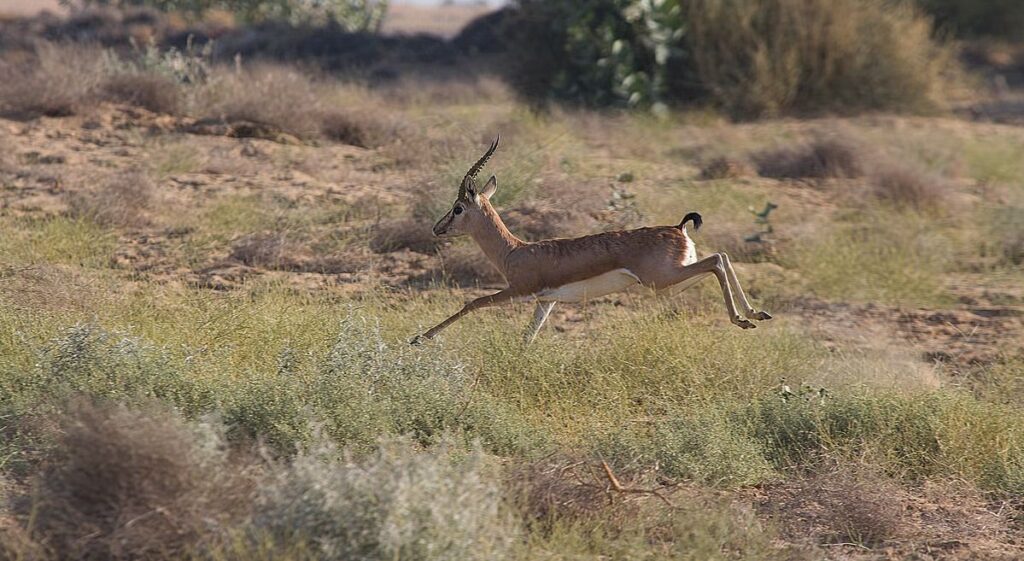
Located in the Thar desert of Rajasthan, Desert National Park is the second-largest National Park in India. Spread across 3,162 square kilometers, the park is famous for the Great Indian bustard which is a critically endangered bird species. The park also provides a safe haven to various migratory birds.
The best time to visit is from November to Mid March. The closest big city is Jaisalmer which is around 45 Kilometers from the park.
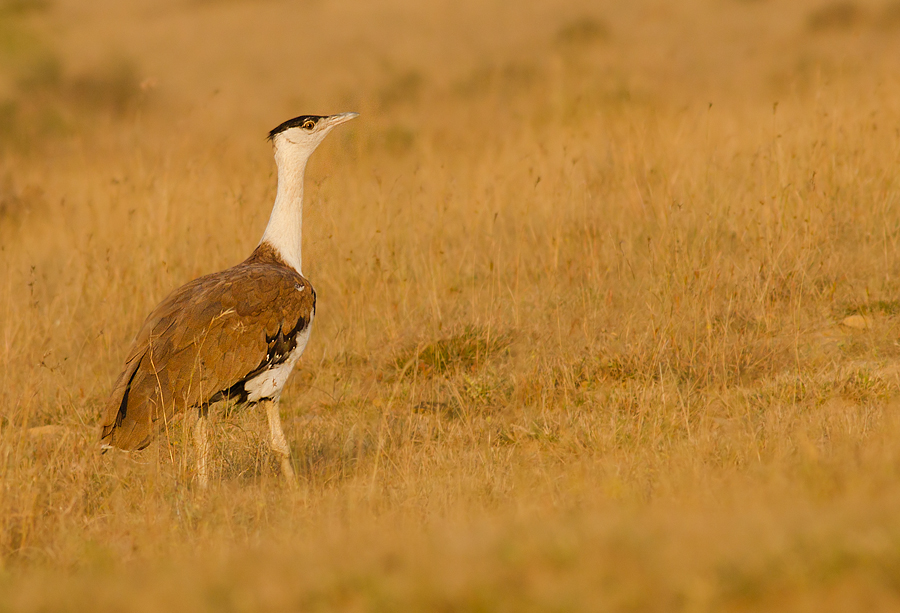
3. Gangotri National Park
| Area | State/UT | Established |
| 2,390 sq km | Uttarakhand | 1989 |
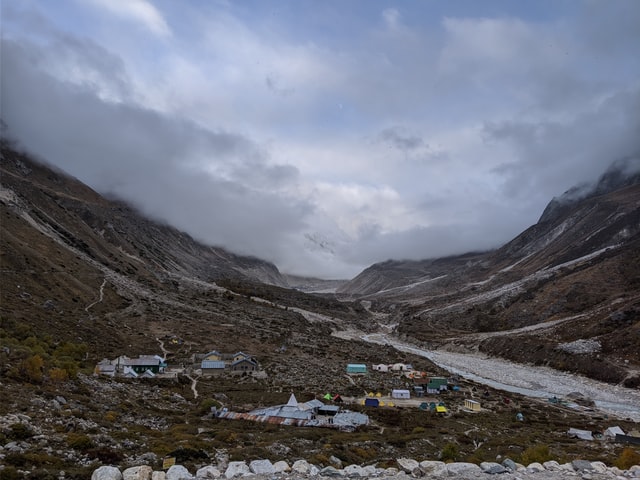
The Gangotri National Park Of Uttarakhand was established in the year 1989. The total area of the park is 2,390 square kilometers and its elevation ranges from 1,800 to 7,100 meters. The Gangotri glacier which is the origin of the sacred Bhagirathi river is located inside the National Park. Because of the large elevation range, a wide variety of flora and fauna is present in the park. The park is also known for its various trekking routes.
(Also read: Forest cover in India – state wise cover)
4. Namdapha National Park
| Area | State/UT | Established |
| 1,808 sq km | Arunachal Pradesh | 1983 |
Located in the beautiful north-eastern state of Arunachal Pradesh, Namdapha National Park is the fourth largest National Park in India. The park was established in 1983 and it covers an area of 1,808 square kilometers. Both a National Park and a Tiger reserve, the area is home to four big cats – Tiger, leopard, clouded leopard, and snow leopard. Moreover, there are a total of 1,285 fauna species in the park.
The Namdapha flying squirrel is one of the “most wanted lost species” in the world last scene in 1981 in the park. The search for the squirrel is still on so that it can be provided better conservation. There is a great chance that the species is already extinct.
5.Khangchendzonga National Park
| Area | State/UT | Established |
| 1,784 sq km | Sikkim | 1977 |
The Khangchendzonga National Park is a UNESCO world heritage site in Sikkim state. Also a biosphere reserve, the park is named after Kanchenjunga, the third highest mountain peak in the world. The area is home to a wide variety of flora and fauna showcasing the east Himalayan ecosystem.
The park is around 50 kilometers from the capital city of Gangtok. It was established in 1977 and covers an area of 1,784 square Kilometres.
6. Guru Ghasidas (Sanjay) National Park
| Area | State/UT | Established |
| 1,441 sq km | Chhattisgarh | 1981 |
Guru Ghasidas National Park (also known as Sanjay National Park) is located in the heavily forested state of Chhattisgarh. It was established in the year 1981 and was declared a tiger reserve recently in 2014. As one of the largest National Parks in India, the park is spread across 1,441 square kilometers.
(Also read: National parks in India – full list)
7. Sunderban National Park
| Area | State/UT | Established |
| 1,330 sq km | West Bengal | 1984 |
Sunderban National Park of West Bengal is located in the Sunderbans delta (Ganges delta), the largest river delta in the world. The National Park was established in 1984. It covers an area of 1,330 sq km. Famous as the fortress of the Royal Bengal Tiger, the park is both a Tiger as well as a biosphere reserve.
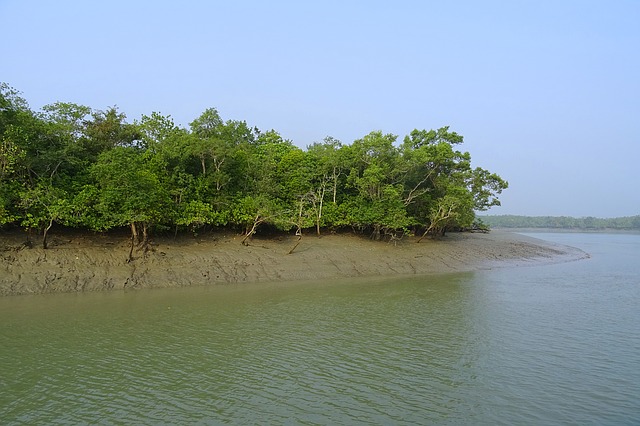
Getting a glimpse of the king can be difficult so don’t go to the park just to see the Tiger. There is a lot of enthralling wildlife you can see. The park is open from September to March but the best time to visit is during the winter months of December, January, and February.
8. Indravati (Kutru) National Park
| Area | State/Ut | Established |
| 1,258 sq km | Chhattisgarh | 1982 |
Another large conservation area in Chhattisgarh, Indravati National Park got its name from the Indravati river that flows nearby. This forest is famous for the Wild Asian Buffalo which is an endangered species.
The National Park has an area of 1,258 square kilometers. It was established in 1982 and was declared a Tiger reserve in 1983.
9. Papikonda National Park
| Area | State/UT | Established |
| 1,013 | Andhra Pradesh | 2008 |
Papikonda National Park is located in Andhra Pradesh. It is one of the newest protected areas in India, declared a National Park in 2008. The park is one of the best places to see the eastern ghats ecosystem. It is also listed as an Important Bird and Biodiversity Area (IBA).
10. Kanha National Park
| Area | State/UT | Established |
| 940 sq km | Madhya Pradesh | 1955 |
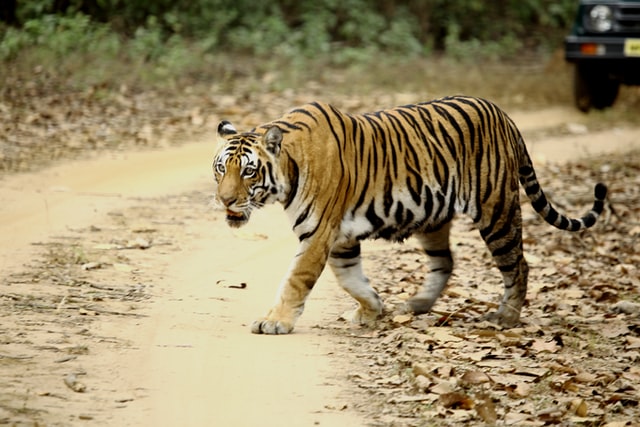
One of the most famous National Parks in India, Kanha National Park has a core area of around 940 square kilometers. Located in the Satpura range of Madhya Pradesh, the park is one of the best places to see Tigers in India.
Quick question
When is Earth day celebrated every year?
Some additional facts about National parks in India
- The first National Park in India was established in 1936 as Hailey National Park which in now known as Jim Corbett National Park. It is located in Uttarakhand state.
- There are a total of 106 National Parks in India.
- National Parks in India cover an area of 44,403 sq km which is 1.35% of the total geographical area of India.
- Madhya Pradesh has the highest number of National Parks. There are 11 National Parks in Madhya Pradesh.
Read more
Answer to quick question
22 April
I hope to visit the National Parks of central India some day.
They are beautiful.
I wish to visit Indian national park and observe the nuture